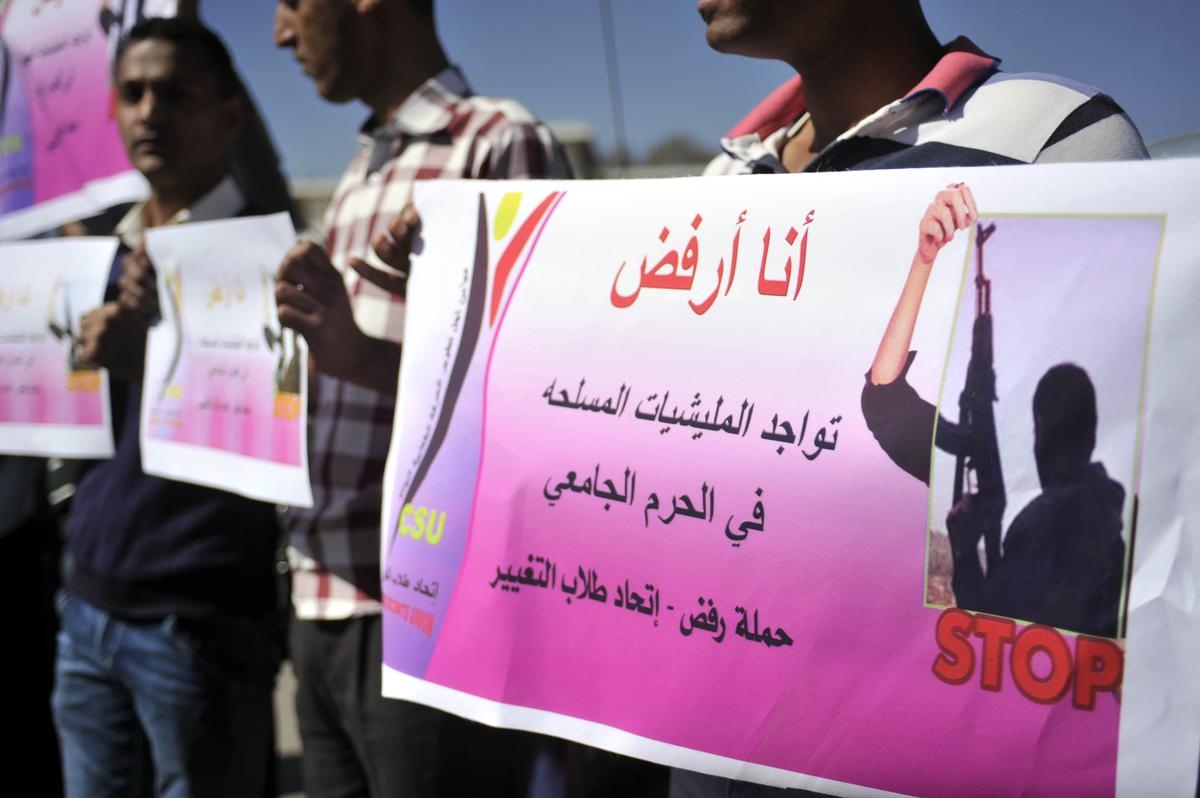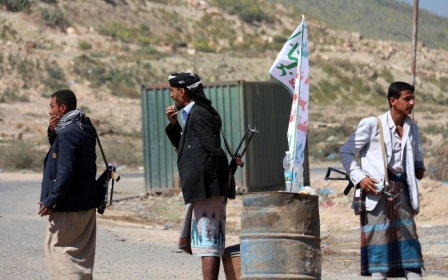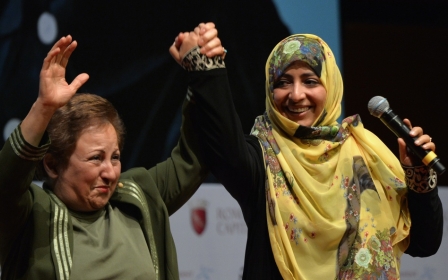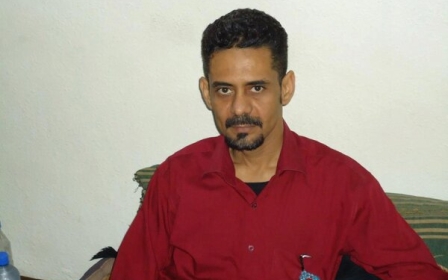'We are not in a university, we are in a battleground'

SANA'A, Yemen - Just when Mohammed al-Qalisi thought his university was liberated from armed control, he was wrong.
After months of angry student protests at Sana’a University, al-Qalisi on Thursday said the Houthi rebels handed control to Yemeni security forces. But on Tuesday, the militias were once again seen walking on campus, despite the presence of the security forces.
"This is just another political game. They haven’t left, they just returned wearing army uniforms," said al-Qalisi, who is studying radio and television broadcasting.
On 25 November, armed Houthi fighters stormed the grounds of the Lebanese International University (LIU), also in the capital, and demanded that a new electricity line be opened outside the campus.
Hussein Nasser al-Yabari, who studies international business administration, said the campus resembled a battlefield: gunshots were fired and women scrambled into classrooms looking for refuge. "This is very bad from Ansar Allah [the Houthis]. Their actions discourage young people from wanting to study," al-Yabari said.
For many professors and students at Sana'a University, this was not the first time they saw armed vehicles on campus. After the 2011 revolution, the First Armored Division, led by General Ali Mohsen al-Ahmar, controlled the university until it was evacuated in December 2012.
"There has been a significant rise in the use of firearms on campus, after the Shia rebels took over Sana’a in September," said F.B., head of the English department at Sana’a University, who spoke under a pseudonym for security reasons.
F.B. said that previously, if professors saw weapons in classrooms, they would publicly condemn their use. Now they feel inhibited, since the Houthi rebels are a part of the government.
"Universities are sanctuaries for learning. It’s such a mess now, is this their idea of a revolution?" asked Ghaleb Hizam, a former student at Sana’a University, now working as an Arabic professor at the University of Science and Technology.
'We want to study in peace'
On 17 December, Houthi fighters stormed several government buildings in Sana'a. The Houthis - an opposition group whose stronghold is in Yemen's north - first overran Sana'a in September, and have since tightened control over the capital.
The fighters said they were following orders from their leader, Abdelmalek al-Houthi, "to end corruption in all state institutions".
Hussein al-Bokhaiti, a spokesperson for the Houthi political office, said that universities are no places for weapons and that the Houthis should withdraw. He insisted, however, that "the Houthis are responsible for security in Sana’a".
"If we don’t protect the university, it might be a target for extremists," he said.
The Iran ambassador’s residence in the capital came under a heavy attack by al-Qaeda in the Arabian Peninsula (AQAP) a few weeks ago. Last year, the group also targeted the Ministry of Defence and the military hospital. "What will stop them from the university?" al-Bokhaiti asked.
According to the Yemen Armed Violence Assessment, a project of Small Arms Survey, a Geneva-based think-tank, Yemen is the second most heavily armed society in the world after the United States. Current estimates suggest that Yemen's 22 million citizens possess approximately 11 million civilian firearms.
But unlike the US, Yemen has no laws covering the possession of weapons on campus.
"We want to study in peace. Some days I don’t attend class because of the war and uncertain political environment," said Shami Abdulaziz, 23, an English translation student who explained that she takes alternative routes to avoid coming across the Houthis.
Unlike Abdulaziz, Yasmin Al-Zubri, 20, said she is unfettered by the presence of armed men on campus and doesn’t let it interfere with her studies.
Another student pointed to a few women who identify themselves as Houthi supporters and who, she said, stir up trouble on campus. "They are not kind and friendly," al-Zubri said, adding, "They don’t carry guns. But we ignore them, because you never know what they will do next."
Al-Zubri said she is weary of the fighting and killing, and wants peace. "If this continues with the armed groups, I will leave the country."
But not all young women are able to relocate like al-Zubri, and some have reservations about leaving. "I would like to [leave] but I can’t, because we are girls, and this is a traditional country. It’s not permitted in our culture," said Imtiaz Hussein, who is studying English literature.
Despite the fears brought on by the weapons on campus and in the streets, the women said they are determined to see a brighter future. "By staying at home, I don’t think that will happen," Hussein said.
Psychological impact severe
A.K., a professor of Indian origin who has taught literature and poetry at Sana'a University for more than a decade, said he would not comment directly on the presence of arms on campus for security reasons. "This is the demand of the situation, I cannot say whether it is good or bad, if it is protecting some lives," he said.
He added: "Yemen today is going through an important political transition and there are obstacles."
Student Ayman Salem, 29, recounted a violent incident that took place in the language department a week ago, when his glasses were broken due to an altercation between two student groups.
Salem said that the dean of the college washed his hands of the incident when the president of the student’s union informed him what had transpired. "We asked for a committee to monitor who enters the building, but nothing was done. At least, with the Houthis on campus, we feel safe," Salem said.
For his part, F.B. said the use of weapons is psychological. "When people have guns they think they can protect themselves. But who are they defending themselves against?"
He added that students aren’t the only ones who are suffering. "Faculties don’t feel safe - I have personally known of some students sitting in my class with weapons," he said, adding that the situation may improve now that the university is pursuing talks with the Ministry of Higher Education to ban weapons from university grounds.
‘We believe [that the] Houthis are with the government now, they shouldn’t be using guns. This is what we believe, but again I’m not sure how much will change," he said. "I’m not very optimistic, but I'm keeping my fingers crossed."
New MEE newsletter: Jerusalem Dispatch
Sign up to get the latest insights and analysis on Israel-Palestine, alongside Turkey Unpacked and other MEE newsletters
Middle East Eye delivers independent and unrivalled coverage and analysis of the Middle East, North Africa and beyond. To learn more about republishing this content and the associated fees, please fill out this form. More about MEE can be found here.




